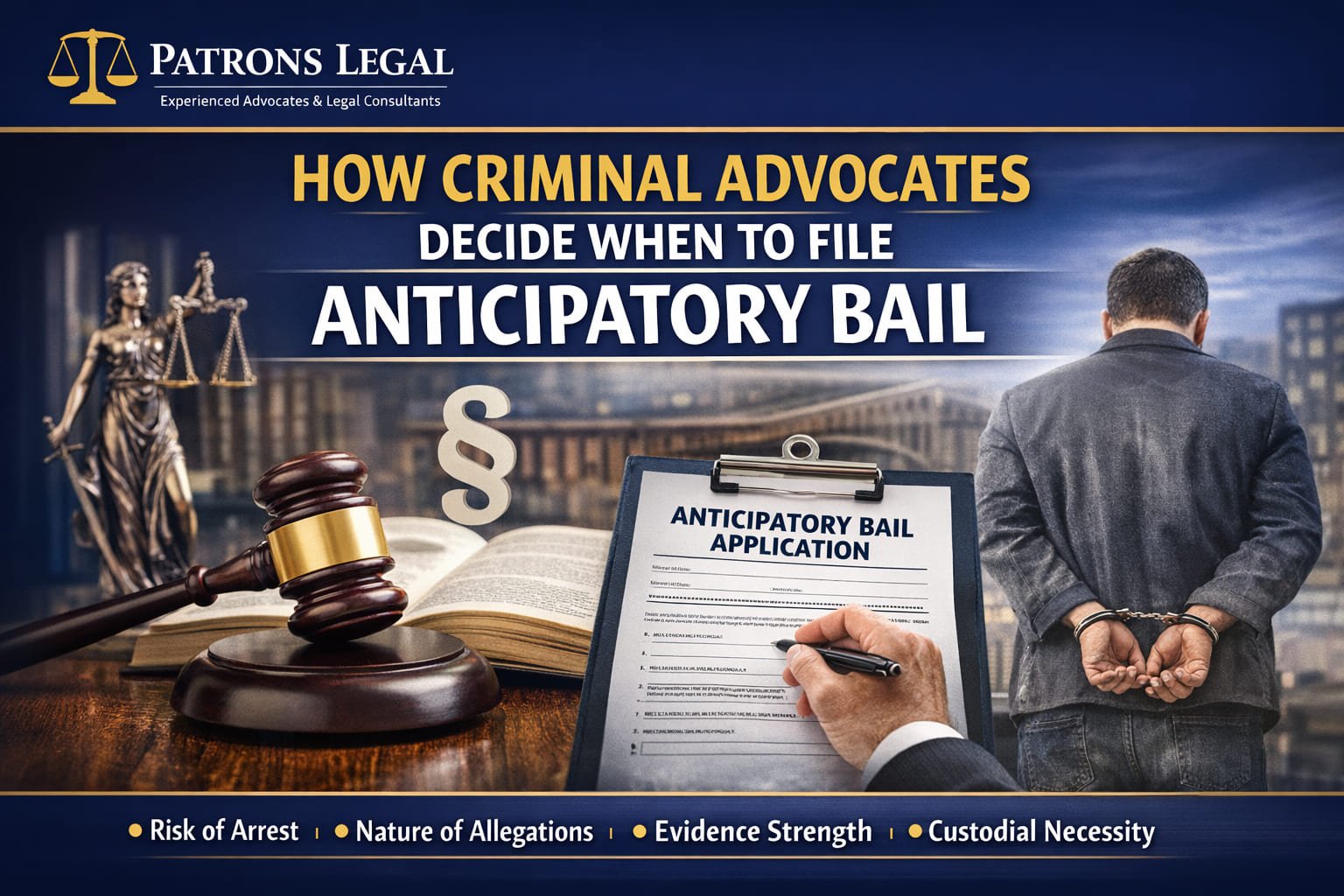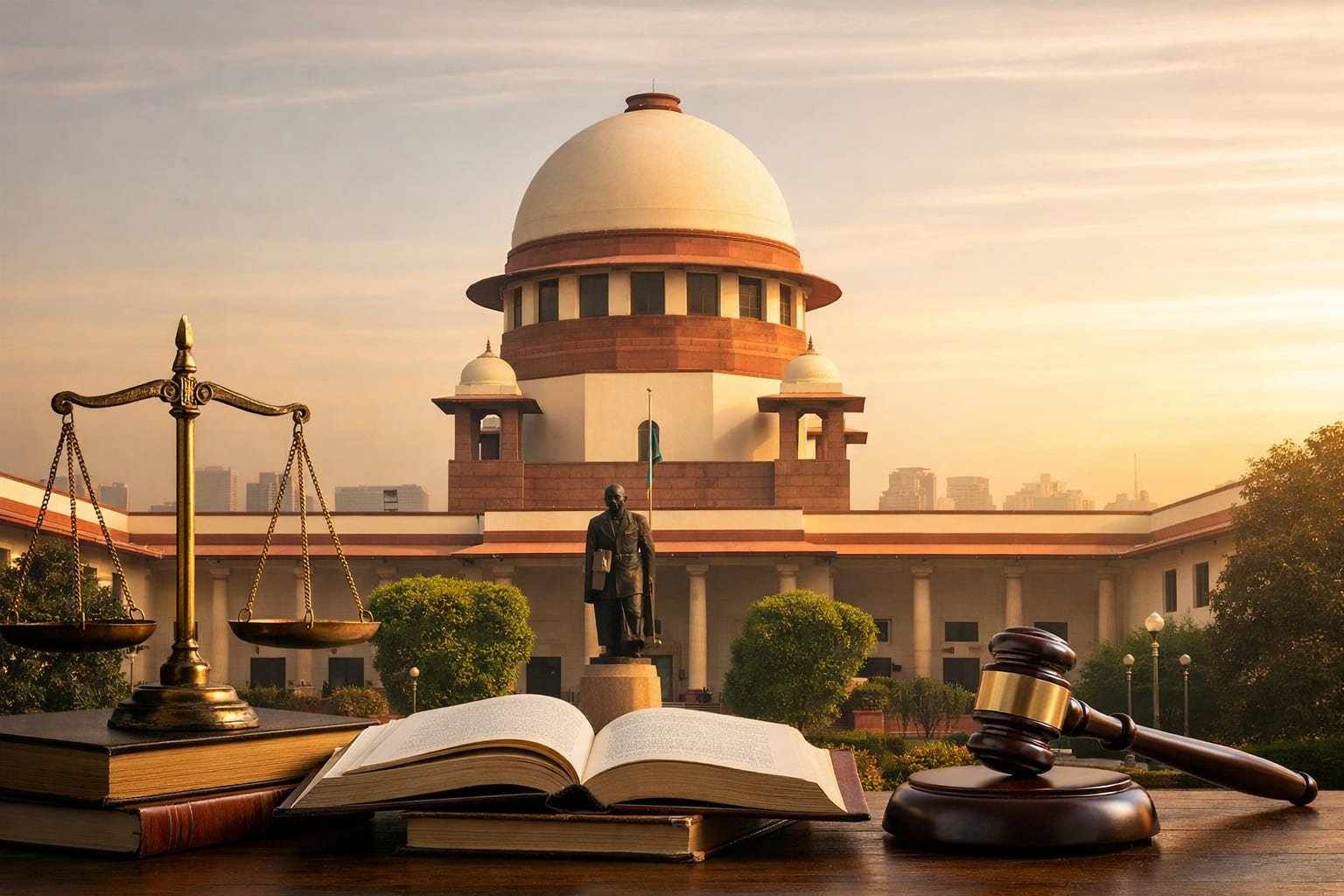Objective and Aim of the Project:-
The research paper aims to analyze the constitutionality of DNA sampling in civil and criminal cases. The object of this paper is to find out an idea about the necessity of DNA profiling and also regarding the conflict between individual-individual interest and individual-societal interest and the harmony between them. It also includes views in support and against DNA profiling and also about suggestions in this regard. The researcher also aims to find out the harmony between the various judgments.
Motivation:-
Despite the importance of DNA profiling and its constitutional aspects, there has been no large judges bench yet constituted on the issue till now to make the law stringent and there is still ambiguity and confusion as to its constitutionality and in what cases it can be allowed. The researcher has not found any book that has comprehensively dealt with it. This has highly motivated the researcher to find out in what cases DNA sampling is constitutional and can be allowed. The researcher is curious to know the legal implications of DNA sampling on the fundamental rights of a person.
Research Problem:-
To find out an idea regarding the constitutionality of DNA sampling in light of Article 20(3) and the Right to Privacy towards blood, hair, skin, etc. as is implicit under Article 21 of the Constitution. The question that has been troubling the researcher’s mind is that there is no clear-cut law or judicial precedents as to the constitutionality of DNA sampling and after many judgments also there is a lot of ambiguity regarding it. The question is not as to the accuracy of the DNA report as such, rather the issue is whether a person be compelled to give DNA samples like hair, blood, etc. The researcher in this project has tried to find out the various issues existing with respect to DNA profiling. The researcher will try to find whether the constitution allows DNA profiling of a person against his will or not. The researcher will be going through various constitutional provisions like Articles 20(3) and 21 and Section 112 of the Indian Evidence Act 1872.
Therefore the researcher has set the problem in such a manner so that he is able to arrive at a definite solution and to anticipate a proper outcome of the problem. The problem is also set by keeping in mind the available resources in the library, time, and expertise.
Research Questions:
The researcher through his research will try to find out the answers to the following questions to test his hypothesis. The hypothesis may be verified or nullified, wholly or partially, after the researcher has completed his research.
1. In Criminal Cases, is DNA sampling constitutional in light of the Right to Privacy (towards blood, hair, etc.) and the Right to Dignity under Article 21?
2. In Criminal Cases, is DNA sampling constitutional in light of the Right not to be compelled to give self-incriminating evidence under Article 20(3) of the Constitution?
3. In Civil Cases, is DNA sampling constitutional in light of the Right to Privacy (towards blood, hair, etc.} and the Right to Dignity under Article 21 especially in paternity cases?
4. To what extent is DNA sampling constitutional in India?
5. Can a father compel a child for DNA profiling if ‘conclusive proof’ is raised under Section 112 of the Indian Evidence Act 1872? The anatomy of Section 112 and why is Section 112 called a harsh law?
Hypothesis:-
The researcher in this project proceeds with the hypothesis that DNA sampling if done without consent, is a violation of the right to privacy towards blood, hair, etc. as is implicit under Art. 21 and also particularly in criminal cases it is a violation of Art.20 (3) that is prohibitive against compulsion to give self-incriminating evidence and hence it is unconstitutional and is inadmissible in the courts.
In this hypothesis, there is a causal relationship between the ambiguous and conflicting judgments of the courts and the lack of clear and proper law in that regard. The former is a dependent variable and the latter is an independent variable.
There is also a causal relationship between the failure of the Supreme Court to constitute a large judge bench on the point of constitutionality of DNA sampling and the non-uniformity of judgments by the various courts. The former is an independent variable and the latter is a dependent variable.
The researcher will evaluate the various constitutional provisions and the judgments of the various courts in his research that will help him to verify or nullify the above-mentioned hypothesis.
Research Methodology:-
In this paper, the researcher has primarily used descriptive and analytical methodology of research due to time constraints. The researcher could not find any book in the library that has elaborately and comprehensively dealt with his research topic constitutionality of DNA sampling. The researcher has mainly relied upon the original judgments criminal law journals, and other secondary sources, which include books relating to DNA testing and forensic sciences available in the library, Internet sources, etc.
Mode of Citation:-
NLS Guide to Uniform Legal Citation is followed throughout this paper.
Scope:-
The scope of this paper is to find the need for DNA sampling in civil and criminal matters and its constitutionality.
Due to conflicting judgments and lack of appropriate law, there is an ambiguity as to the constitutionality of DNA sampling and in what all cases can a person be compelled to give samples for DNA profiling. The frequent cases before the higher courts and the difference of opinions of various courts indicate the lack of stringent provisions of law on this point.
Limitation:-
This project paper is confined only to constitutional aspects of DNA sampling in India and the guidelines given by the courts in various judgments. Due to a shortage of time, the researcher could not enter into field research and he entirely depended upon the material available in his library and the web sources.
ABSTRACT
In this paper, the research student has tried to explain the constitutionality of DNA sampling in civil and criminal matters and the limitations upon it. While going through the topic we will get an idea about the impact of DNA profiling on the Fundamental Rights of a person. This project shows the various issues involved in DNA sampling concerning the Indian Constitution and the Indian Evidence Act. This paper also gives significance to the views of the different Courts in support of and against DNA profiling and the guidelines given by the courts before allowing DNA profiling. This project also gives a general idea about the recent developments that have taken place concerning the constitutionality of DNA profiling.
1. INTRODUCTION:
DNA: DEOXYRIBONUCLEIC ACID
DNA profiling is also known as genetic fingerprinting and is not concerned with the conventional process of fingerprinting. DNA technique detects and displays a DNA pattern that is unique to every person as a simple track of bands like the bar codes found on food packing. DNA testing is considered to be an accurate proof of identification and relationship. As the science of DNA is highly developed, its evidentiary value is very strong.
During the earlier years of DNA testing, it provided for some narrowing of suspects but it often yielded erroneous results. However, in the last decade DNA technology has remarkably advanced to more discriminating methods. The introduction of DNA testing has lead to a revolutionary development in forensic science and the criminal justice system by providing Courts the mechanism to find the highly confident perpetrators of crime. Reports of DNA profiling are very much capable of definitively excluding potential suspects and exonerating wrongfully convicted defendants. Also, DNA profiling is considered to be the most reliable scientific testing to determine parenthood.
DNA tests in the arena of Criminal jurisprudence have been a boon for criminal investigations. Alternatively, in civil cases, DNA profiling can be used to determine the paternity of a person and to disprove fraud allegations of paternity. Unlike blood typing which provides for statistical likelihood and exclusion, DNA profiling provides positive and conclusive determination, it can provide certainty of practical level in paternity cases.
2. POSITION IN INDIA:
DNA sampling is looked at by the Judiciary as Expert Evidence under Sec. 45 of the Indian Evidence Act, 1872. There is also a prevailing uncertainty as to whether a suspect or anybody else can be forced to give a sample for testing and whether will it be considered a violation of Art.20 (3) of the Constitution is prohibitive against compulsion to give self-incriminating evidence and whether will not the passing of such an order by the Court violates Right to Personal Liberty and Right to Privacy under Art.21 of the Constitution.
2.1 SECTION 45 – Indian Evidence Act, 1872:
This is the most important Section of the Act vis-à-vis forensics. There has been a lot of confusion as to what constitutes “science” under Sec.45 . There were contradictory judgments in the earlier cases. But in its recent judgment in State v. Chaudhary, the Supreme Court has not only eliminated the absurdity relating to typescript identification but has also provided the guidelines for the induction of new types of scientific evidence (DNA, voice identification, pattern recognition, brain mapping, etc.).
In the State of Himachal Pradesh v. Jai Lal, the Supreme Court held that expert witness must have special knowledge of the subject or should have special experience.
2.2 SECTION 293 – The Civil Procedure Code, 1909:
It deals with reports of certain Government Scientific Experts. Sec. 293(3) provides that the Court may in its discretion summon and examine his report.
2.3 The Identification of Prisoners Act, 1920: Sections 2, 3, 4, 5, and 6 of the Act are relevant to the expert evidence. They provide legal sanctions for obtaining specimens from the suspects/ accused/ convicts.
Reliability:
DNA report is a very strong piece of evidence but it cannot be the sole ground for conviction, it has to be supported by some corroborating evidence.
DNA Testing
(i)CIVIL CASES:
(ii)CRIMINAL CASES:
5.2 ARTICLE 21:
Is DNA sampling a violation of the Right to Privacy (towards hair, blood, etc.) and the Right to Human Dignity under Article 21 of the Constitution?
5.2.1 Individual Interest vs. Societal Interest:
A crime is considered to be a crime against the society at large and societal interest is paramount. If that is the case then Fundamental Rights do not remain absolute and they can be restricted to that extent in the societal interest. Detecting the crime and getting the accused punished is what the societal interest is involved in. Hence if DNA sampling is essential for establishing the identity or to establish the relationship, then one can be compelled by the larger societal interest to give the samples.
In Criminal Matters, as a matter of routine samples can be taken and if someone denies the Magistrate will not be hesitant at all and may order the accused to give blood samples as Article 20(3) not at all is being violated and the rights under Article 21 are not absolute and can be curtailed to the extent of societal interest.
5.2.2 THOGORANI alias K. DAMAYANTI v. STATE OF ORISSA (Orissa High Court)
(Judgment delivered by A. K. PATNAIK J.)
The Court held that the only restriction upon us in issuing an order to collect the blood samples of the accused for DNA profiling would be that before issuing any such order the Court must balance the rights under Art. 21 and Art. 20(3) of the Constitution vis-à-vis the societal (public) interest. The Court has to consider the following matters:
a) The extent to which the accused may have been involved in the crime.
b) The gravity of the offense.
c) The circumstances in which the crime is committed.
d) The age, and physical and medical health of the accused.
e) The reasons of the accused for denying the consent.
f) As to whether there is a less intrusive way of proving the involvement of the accused in the crime.
6. DNA Testing in Civil Matters
6.1 JUSTICE MALIMATH Committee Report:
It outlines the need for the incorporation of DNA testing along the lines of change of scientific temper and social outlook as a scientific means of resolving any dispute relating to paternity.
The father denies the paternity and the son asks for DNA testing to prove his relationship with him. He denies giving samples and pleas:
a) Right to Privacy under Article 21
b) Right to Human Dignity under Article 21
c) Right to Reputation under Article 21
6.2 Individual Interest vs. Individual Interest:
For crime detection purposes, rights under Article 21 can be restricted but Article 21 cannot be curtailed as easily here as in criminal cases because it is a conflict of Private Interests between two individuals and not that of a societal interest. Hence the logic on which in criminal matters a person can be compelled to give samples, that logic will fail here.
6.3 GOUTAM KUNDU v. STATE OF WEST BENGAL (2 Judges Bench) :
The Supreme Court held that in civil matters a person could not be compelled to give blood samples for any kind of medical test or blood profiling.
In this case, the child was born during the continuance of a valid marriage and hence under Section 112 – Indian Evidence Act 1872, it was conclusive proof that the child is his child. But the father pleaded that he was not the child’s father and prayed for DNA testing which the Court rejected. The Court granted maintenance to the wife and the child.
But the Goutam Kundu judgment has to be restricted to the extent of its particular facts. When under Section 112 the conclusive proof of his being the father of the child has been raised as he was unable to prove non-access in the context of Section 112 to the complete satisfaction of the Court, then in that case he cannot avoid his liabilities by claiming the DNA test to be done. In such cases, the DNA test cannot and need not be compelled.
Even if the Court had allowed the DNA profiling and a negative DNA test report had been given, still the presumption of Section 112 cannot be disproved. It is a presumption of law and it is conclusive proof.
6.3.1 “Conclusive Proof” :
Something that is conclusive proof is not rebuttable under any circumstances based on any factual evidence. Presumption of Law that is non-rebuttable and cannot be disproved by any factual evidence no matter how perfect that factual evidence may be.
Hence the question of DNA testing arises only when the presumption of Sec. 112 is not being raised and the child is not able to somehow prove that he is the child of the respondent.
6.4 The Anatomy of Section 112- Indian Evidence Act:
6.4.1 Presumption of paternity:
The fact that the child was born during the continuance of a valid marriage or that it was born before 280 days of the dissolution of the marriage provides the mother had not remarried someone else before such birth and also the fact that the marriage between the mother of the child and the respondent was a lawful marriage is relevant under Sec. 9 of the Indian Evidence Act, 1872 to prove the legitimacy of the child. The role of Sec. 112 is not to make these facts relevant under Sec. 9 to prove the legitimacy of the child. The burden of proving this lies upon the petitioner. The role of Sec. 112 is not to make these facts relevant under Sec. 9, rather Sec. 112 has the role of raising the conclusive presumption i.e. if the petitioner has been able to prove the above facts, in the normal circumstance the respondent had a right to rebut that fact by proving some other facts, however, the role of Sec. 112 is that upon the proof of the other facts, the conclusive presumption of paternity will be raised and now a rebuttal is not possible. However to prove the conclusive proof under Sec. 112 it has also to be examined as to whether the respondent has been able to prove that he did not have access to the mother of the child at the time when the mother would have got pregnant.
6.4.2 Burden of Proof:
1. The burden of proving the lawful marriage is upon the petitioner (child).
He can prove that by marriage certificate, marriage card, marriage photographs, the conduct of the respondent, Sec. 32 – statement of a dead person having special means to know their relationship, long cohabitation- the Court can raise a presumption under Sec. 114 that the petitioner’s mother is a lawfully wedded wife of the respondent but it is a rebuttable presumption, etc.
2. The burden of proof is upon the child to prove that he was born during the continuance of the valid marriage of the respondent and his mother or within 280 days of the dissolution of the marriage and his mother had not remarried to someone else.
3. The respondent has the right to prove non-access (about sexual intercourse i.e. whether sexual intercourse was possible in that or not). Through medical reports approx period of getting pregnant could be found out, then prove whether at that time the respondent had access to the lady or not.
Sec. 112 is a provision of social welfare to avoid destitution or bastardization of the child. Therefore the tilt of the Court will always be to presume that the respondent had the access. Hence the burden of proof upon the husband will be very strict to prove that he did not have access.
6.4.3 “non-access”-no access criteria:
“access” has to be seen about the possibility of sexual intercourse and the woman becoming pregnant. Here even if the husband has been broadly able to prove the non-access during that period, it will amount to access if there is proof that the husband had met the wife or there was a possibility of meeting the wife if the meeting was such that sexual intercourse was possible then still Sec. 112 will apply. But to the contrary, if the meeting was only at a public place and sexual intercourse was not possible it would be a case of non-access. In such cases, the Court will be tilted toward raising the conclusive proof and the burden upon the respondent will be very strict.
The presumption of Sec. 112 (conclusive proof) will apply even though the woman was in an adulteress relationship with some other person other than her husband. The criteria is not whether she was in a relationship with someone else or not rather the criteria is whether the conditions of Sec. 112 are fulfilled or not. If yes then the ‘conclusive proof’ will be raised irrespective of the adulteress relationship.
In the artificial insemination cases, it is almost the same as if there was sexual intercourse, and therefore the normal rules as in Sec. 112 will apply.
6.4.4 Harshness of Section 112:
Sec. 112 has nothing to do with as to when the lady got pregnant, rather Sec.112 has to see whether the child was born during the continuance of the marriage. Therefore even if the child is born the next day after the marriage, still it will be considered to be the respondent’s child. This is the harshness of Sec. 112, but then this is what as of now the law is.
We can always be suggestive that making some amendments shall reduce the rigor of the law but as of now, there is no such amendment. Law is as it is.
6.5 Right to Privacy of Father vis-à-vis Right to Dignity and Social Status of Child:
In paternity-related matters, it is a matter of public policy to have a special approach for women and children and the Courts should also have a special approach towards them.
ARTICLE 15 talks about special provisions for women and children. The Judiciary should also be tilted in the same frame of mind. It is a matter of a child and his paternity and the father is denying the paternity:
1. Is he not responsible for bearing the child’s entire expenses?
2. Is it not a matter of dignity for the child that his father accepts that he/she is his child?
3. Is it not a matter of right for the child to get all the benefits provided by law from his father?
Therefore:
(a) if the concerned person is denying the Paternity,
(b) if the Court is satisfied there is Prima Facie that the person concerned may his father, and
(c) if the paternity is denied to this child, then the child will be rendered a bastard or destitute, that will be a great injustice to the child. In such proper cases despite the Right to Privacy and the Goutam Kundu judgment,
the Court can always order the Respondent to give his blood, hair, skin, etc. samples. The higher Courts normally do this.
Comment: why not the lower Courts, in proper cases the why not the Civil Judges may also order DNA sampling.
After the Goutam Kundu judgment, several two Judges bench have allowed the DNA testing:
6.6 CASES:
• AMARJEET KAUR vs. HARBHAJAN SINGH (2 Judges bench)
• SHRI BANARSI DASS vs. TEEKU DUTTA (2 Judges bench)
(Judgment delivered by ARIJIT PASAYAT J.)
In both the cases above the Court very clearly held that whether DNA testing should be allowed or not depends on the circumstances of the case and the Court has the discretion to decide in light of the particular cases.
• KANCHAN BEDI vs. GURPREET SINGH BEDI (2003 Delhi HC)
In a maintenance suit by a minor, if the Respondent denies paternity, then the Court has to examine the entire circumstances of the case and have to see the effect of denial upon the interests of the child and thereupon it may compel the respondent to undergo the medical test.
6.6.1 N. D. TIWARI case :
The Court held:
1. The right to Social Dignity of the child under Article 21 is at stake.
2. The child has the Fundamental Right of Speech and Expression under Article 19(1)(a).
3. Prima Facie evidence is there to show that the respondent had been behaving like his father.
Hence the Court allowed the DNA testing.
7. Conclusion- Rationale Behind Allowing DNA Testing:
In Criminal matters, the reason for allowing DNA testing is crime detection, and as a general rule DNA testing is allowed.
In Civil matters, the reason for allowing DNA testing in some cases is public policy i.e. the welfare of the child. The Court has to examine the circumstances case by case, there is no hard and fast universal rule. The balance has to be drawn by the Court – if grave injustice is caused to the child, the Court will normally allow the DNA sampling.
There is a necessity for the judiciary (SC) to set down proper guidelines on how trial Courts should approach cases involving DNA evidence and how it is to be evaluated. The confusion is still prevalent with different judges making different rulings on DNA profiling (-Dr. G. V. Rao, Chief and Staff Scientist, Laboratory of DNA Fingerprinting Research, CDFD, Hyderabad).
7.1 Bhabani Prasad Jena v. Convenor Secretary, Orissa State Commission for Women (2010 SC) (Aftab Alam & R. M. Lodha JJ.)
In this case, a matrimonial dispute was pending before the competent District Forum. The High Court suo moto directed for DNA profiling.
The issue before the Supreme Court was whether the High Court was justified in its order for DNA profiling, especially when the matrimonial matter was already pending before the competent District Forum.
DNA sampling is not to be ordered as a matter of routine and only in proper and deserving cases such an order can be given and that too only by a competent Court at a relevant time.
The use of DNA profiling is an extremely sensitive as well as delicate issue. A Court can order DNA profiling only when a strong prima facie case is made out. Courts should normally be reluctant in the use of such scientific advances that result in the curtailment of the Right to Privacy of a person under Art. 21.
SHAIK FAKRUDDIN v. SHAIK MOHAMMAD HASAN:
The Court has the power to order a person to undergo a medical test and such an order of the Court will not be in violation of the Right to Personal Liberty under Art. 21.
- BIBLIOGRAPHY
Primary sources
Statutes
1) THE CONSTITUTION OF INDIA, 1950.
2) THE INDIAN EVIDENCE ACT, 1872.
3) THE CODE OF CRIMINAL PROCEDURE, 1973.
4) THE CODE OF CIVIL PROCEDURE, 1908.
5) THE IDENTIFICATION OF PRISONERS ACT, 1920.
Cases:
1) The State of Bombay v. Kathi Kalu Oghad and Ors AIR 1961 SC 1808
2) M. P. Sharma v. Satish Chandra AIR 1954 SC 300
3) Thogorani alias K. Damayanti v. State of Orissa CLT (2004) Supp. 913 Orissa High Court
4) Govind v. State of Madhya Pradesh AIR 1975 SC 1378
5) People’s Union for Civil Liberties v. Union of India AIR 1997 SC 568
6) Francis Coralie Mullin v. Administrator, Union Territory of Delhi AIR 1981 SC 568
7) Goutam Kundu v. State of West Bengal AIR 1993 SC 2295
8) Amarjit Kaur v. Harbhajan Singh 2003 (1) AWC 344 SC
9) Shri Banarsi Dass v. Teeku Dutta (2005) 4 SCC 449
10) Shaik Fakruddin v. Shaik Mohammad Hasan AIR 2006 AP 48
11) Mrs. Kanchan Bedi v. Shri Gurpreet Singh Bedi AIR 2003 Delhi 446
12) Rohit Shekhar v. Shri Narayan Dutt Tiwari (2011 Delhi HC)
13) Bhabani Prasad Jena v. Convenor Secretary, Orissa State Commission for Women AIR 2010 SC 2851
14) State v. Chaudhary AIR 1996 SC 1491
15) State of Himachal Pradesh v. Jai Lal AIR 1999 SC 3318
Secondary Sources
Books & Articles:
(i)Ratan Lal and Dhiraj Lal, THE LAW OF EVIDENCE, Pg.960, 20th Ed
(ii) Singh M., Evidentiary Value of DNA Fingerprinting and its prospects in India, Indian Bar Review, Vol. 22(1) 1995, Pg.93
(iii) Gauri Subramaniam, DNA vis-à-vis the Right to Privacy, Criminal Law Journal Vol.02 Pg.38 2005
(iv) Dr. G. V. Rao, DNA Analysis in Prosecution Cases: Criteria for Consideration, Criminal Law Journal Vol.04 Pg.289 2005
v) Report of the Committee on Reforms of the Criminal Justice System, March 2003
vi) Nikhil Gurnani, Exclusion of DNA Tests under Section 112 of the Indian Evidence Act 1872: A Senseless or a Meaningless Exclusion, Criminal Law Journal Vol. 02 (04) Pg.118 2011
Web Sources:
1.) http://en.wikipedia.org/wiki/DNA (last visited on 18-07-2013)
2.) http://forensicpage.com/ (last visited on 20-07-2013)
3.) http://www.manupatrafast.in/pers/Personalized.aspx (last visited on 28-07-2013)
DNA profiling holds significant implications in both civil and criminal matters, presenting constitutional aspects that require careful consideration. In civil cases, DNA profiling can serve as crucial evidence in paternity disputes, inheritance claims, and family law proceedings, helping establish biological relationships with accuracy and certainty. In criminal matters, DNA profiling plays a pivotal role in identifying suspects, linking perpetrators to crime scenes, and exonerating the innocent. However, the constitutional aspects of DNA profiling raise concerns related to privacy rights, consent, and the potential misuse of genetic information. Top Civil lawyers and criminal lawyers navigate these complex legal issues, ensuring that DNA profiling is conducted ethically, within legal boundaries, and under constitutional principles, to uphold justice and protect individual rights.








Leave a Reply